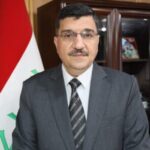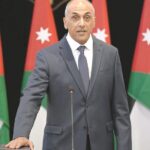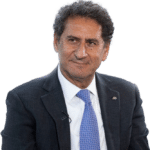MED Panels

Andrea Cabrini
Managing Editor, Class CNBC

Mahdi Rasheed Al-Hamdani
Minister of Water resources, Iraq

Leila Benali
Minister of Energetic Transition and Sustainable Development, Morocco

Muawieh Radaidah
Minister of Environment, Jordan

Mary Burce Warlick
Deputy Executive Director, IEA

Francesco La Camera
Director-General, International Renewable Energy Agency (IRENA)

Joseph McMonigle
Secretary General, International Energy Forum (IEF)
The Middle East and North Africa is amongst the world’s most vulnerable regions in regard to climate change. Challenged by increasing temperatures, changing precipitation patterns, water stress and projected sea level rise, the consequences of climate change are threatening the human and economic development of the region. Tackling global warming is crucial to ensure the security and prosperity of the area: changing the model of economic development and undertaking a structured effort towards a clean energy transition are key actions.
Energy transition opens significant opportunities for economic cooperation and partnerships in the enlarged Mediterranean area. Sharing strategies, efforts, and experiences through the establishment of common frameworks of development as well as improving connectivity through green energy infrastructures will contribute to the sustainable growth while also enhancing cooperation opportunities for the region. How can regional cooperation on energy transition be improved? Which approaches can be adopted to increase investments on decarbonization policies and low and zero-carbon technologies? How can we steer the dialogue between traditional fuels producing and consuming countries to converge towards new forms of cooperation and to structure anew the world energy governance? How to successfully involve the private sector, financial institutions, and civil society in the path towards clean energy transition?